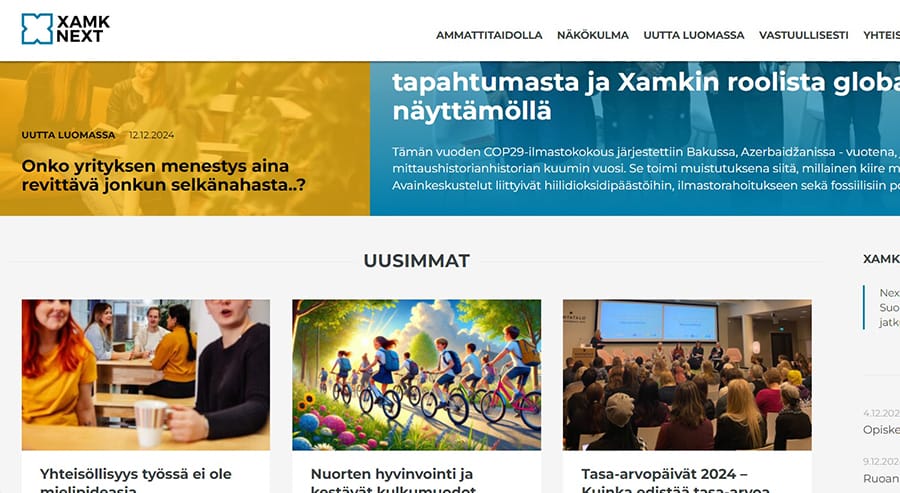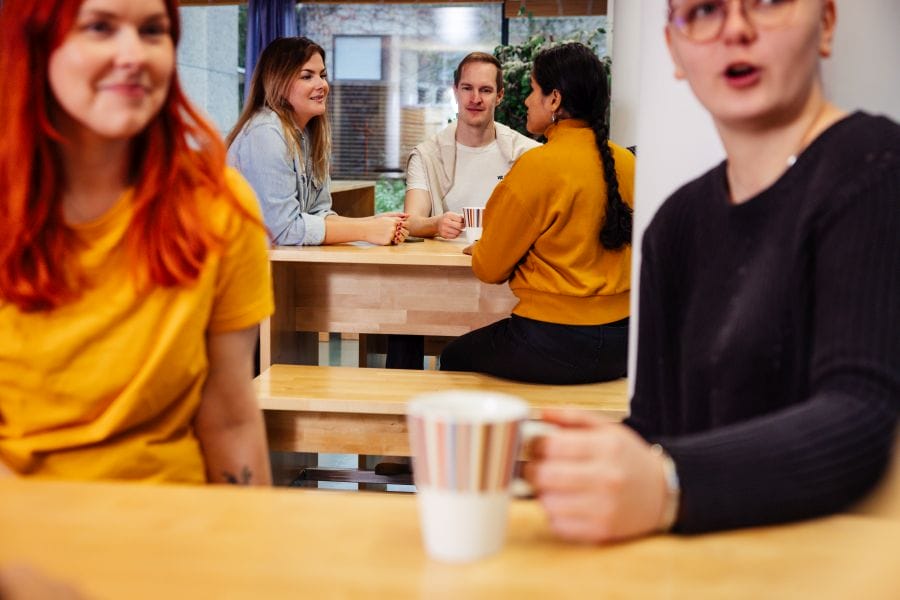Is virtual mobility the future?

Last week I got an e-mail from a Spanish colleague from the University of Nebrija in Madrid, asking if he could have his Erasmus mobility week in Kouvola in October or November. Frankly, I was quite astonished, that he would even consider a “real, old-fashioned” exchange in these extraordinary times.
With Corona cases rapidly increasing in Spain, I was reluctant to use my usual response line “of course, you are warmly welcome”. Instead, I proposed postponing his mobility, which he clearly was not happy about, as he did not bother to reply.
Fact is that the Covid-19 pandemic has put a “freeze hold” on almost all international activities of universities and universities of applied sciences. Xamk is not any different from others.
International teacher´s mobility has stopped completely; exchanges planned and agreed on had been postponed to the unforeseen future. Exchange students are welcome on paper, but teaching is conducted online, so why would they bother coming here if they can study from home.
Needless to say that this is a major setback when it comes to internationalization.
Virtual mobility: a solution?
One of my colleagues was supposed to go on teacher´s exchange to Scotland in March, which got obviously cancelled. However, he decided to go through with his exchange, conducting it online. Instead of visiting there, he will be giving several lectures via Teams for students of our Scottish partner university.
So is virtual exchange going to be the new normal? Personally, I seriously hope it is not. Going on exchange, whether student or teacher, is so much more than giving a lecture to students.
Genuine networking and creating contacts simply do not happen through Teams. Nor can you truly experience the partner university or local culture without being physically present. Just as traveling virtually does not provide the same experience then when you get to experience a culture with all six senses.
In many cultures, relationships are built through informal socializing; like having a meal or drink together. In Finland eating is often considered a physiological necessity; quick and efficient, rarely a social occasion. In Spain, Italy or China for that matter, business lunches or dinners last for many hours and are essential for building genuine partnership/cooperation.
When you strip down an exchange to teaching/studying only, many essential things get lost.
Call me old-fashioned, but I firmly believe you do not get the joint benefits you would otherwise get.
The same goes for Erasmus student mobility. As a person who has experienced Erasmus student exchange and made many friends from all over the world through it, I feel sad for those who must go through it virtually.

The benefits of going on exchange go way beyond getting 30 ECTS. Young people get to improve their communication, language and intercultural skills and gain valuable soft skills in the process, which – let´s be honest – partying with your fellow Erasmus students is an essential part of.
Silver lining
I hope this all is temporary and we can get back to normal and resuscitate our paralyzed international activities soon.
Having said this, I´ll get down to writing an e-mail to the Spanish colleague and make some plans for his exchange for next year. Hopefully in a year or so I can talk with him about what a nightmare year 2020 was in person, over a nice dinner.




